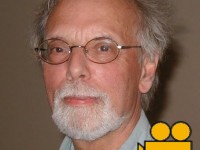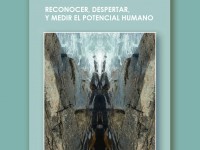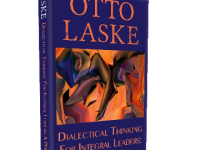This article is a reflection on the lack of systemic and holistic "dialectical" thinking in a world in which more than ever human actions have strong and immediate repercussions in the natural, and thus also the social, environment. It is suggested that present notions of teaching, coaching, and consulting are hopelessly anachronistic since they are built on theories and algorithms of a purely formal logical nature that hinder individuals' potential for dialectical thinking to emerge. Human Systems in the Anthropocene Read More...
Author: Otto Laske
I am the founder and director of IDM, the Interdevelopmental Institute. My background is in philosophy, psychology, consulting, and coaching based on developmental theory to which I have mightily contributed myself. See the blogs at www.interdevelopmentals.org.
Mentoring a Behavioral Coach to Think Developmentally
In this dialog between two coaches, one of them behavioral, the other developmental, I convey the mindset it takes to think about coaching clients in an adult-developmental manner. My goal is to demonstrate the differences in thinking and listening, not just "methodology", that separate the two approaches to coaching. From my experience, while behavioral coaching has its place at lower levels of organizational levels of responsibility, it is increasingly ineffective the higher one climbs up the organizational ladder. This does not preclude, however, that the two forms of coaching could not be fruitfully combined once the coach is expert in handling developmental tools. Keywords: Constructive Developmental Framework, dialectical thinking, handling complexity, developmental listening, social-emotional coaching, cognitive coaching. 2007_Laske_Otto_Mentoring_a_Beh._Coach(1) Read More...
What is CDF: An Introduction for Beginners
This article introduces to the Constructive Developmental Framework (CDF), addressing those readers who want to learn to use the methodology. CDF is seen as a comprehensive framework for consulting and coaching, much like NLP, but on a higher level of consciousness. Its main intellectual strength lies in establishing a methodology for the deconstruction, through dialog, of less developed thinking and meaning making, for the sake of client benefit. Viewed more broadly, CDF is a framework for “coaching for society” that can lift individuals’ and teams’ developmental level. What is CDF -- An Introduction for Beginners Read More...
Effective Team Coaching: Juggling Personalities and Roles
Teams are usually viewed as "flat", disregarding that each of their members is active on a specific level of accountability associated with a specific universe of discourse. What team members are thinking and saying is thus not determined not only by their developmental size of person, but also by the size of their organizational role, and their understanding of the relationship between the two. A team coach or team leader who is disregarding this fact is going to be less effective that s(he) could be. In this webinar, Otto Laske outlines a typology of teams in which both team members' size of person and size of role receive due attention. Read More...
Coaching Goes Developmental
For a long time, there was only coaching focused on client's behavior, not mnd-set, but this is changing. The International Coaching Community (ICC), in collaboration with the Interdevelopmental Institutee (IDM) is starting an introductory course on evidence based coaching based on research in adult development. This gives experienced coaches the opportunity to build a niche for themselves as developmental coaches in the professional sense of the term. To get a feel for this kind of coaching work, go to the course information found at: A link to the September 16 free webinar for this course is found at: To register for the course on developmental coaching for individuals go to: http://www.internationalcoachingcommunity.com/academy/academy-calendar?category_id=1&lang=enregister Read More...
DIALECTIC IS GOOD FOR BUSINESS: IT HELPS TO BEFRIEND IT
It so happens that not only is the world in unceasing transformation, but the human mind (which is part of it) has been given invaluable tools to deal with it. I am referring to the “four moments of dialectic” philosopher Roy Bhaskar taught us, as well as to Basseches' and my own work on dialectical thought forms since the year 1997. In courses at the Interdevelopmental Institute, I have shown since 2000 that the four moments of dialectic equally show up in human thinking, whether manifest in speaking or writing. I daresay this could be a key for living in this rapidly changing world a little more prepared what is coming toward us. How could you make a start in dialectic? Well, as philosophers have always taught us, you need to start with yourself. It isn’t hard, but it takes an effort. Living in a language-suffused world as we do, you could start with what you hear yourself saying when you speak and consider how the four moments of dialectic inform your thinking that is being expressed through concepts. You will find that as soon as you open your mouth you have already placed yourself into one of the four... Read More...


